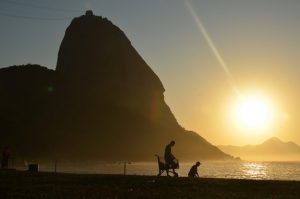
What an Economic Recovery in Brazil Might Look Like
Now might seem like an odd time to look for signs of hope in Brazil. Dilma Rousseff has an approval rating of just 10 percent, she faces possible impeachment proceedings, scandal has frozen activity at the country’s biggest companies, inflation runs around 10 percent and the economy is expected to shrink 3 percent this year. … Read more
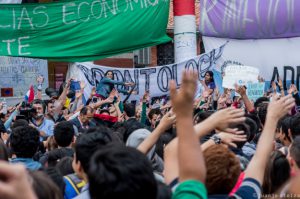
How Students Turned the Tables on Corruption in Paraguay
Add Paraguay to the growing list of Latin American countries where citizen protests are successfully holding public officials accountable for alleged abuses of power. In the past month, a student-led response to revelations of corruption within Paraguay’s largest university has landed the institution’s highest official behind bars and disrupted the status quo in a country … Read more
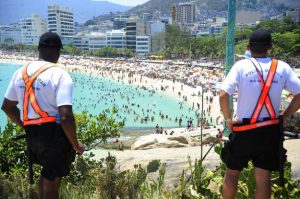
What’s Happening on Rio’s Beaches?
A civil society group is resisting government efforts to restrict access to some Rio de Janeiro beaches, announcing a plan for thousands of the city’s favela residents to travel en masse to a popular Ipanema beach on October 4. Papo Reto Coletivo, an independent media group based in Rio’s expansive Complexo do Alemão favela, is coordinating the event to … Read more
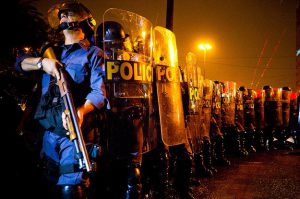
Gangsta’s Paradise: How Brazil’s Criminals (and Police) Use Social Media
Rio de Janeiro´s most wanted drug trafficker, Playboy, died in a hail of police gunfire at his girlfriend´s apartment this month. Photographs of his bullet-riddled body began circulating on the Internet within minutes of his demise. So did an audio recording suggesting that he “left the scene alive, but arrived to the hospital dead.” His assassination is yet another pixel … Read more
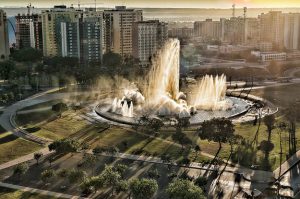
No End in Sight for Brazil’s Petrobras Scandal
Brazil’s current political crisis began at a gas station in Brasília. When federal police raided a currency exchange booth in the station on March 17, 2014, they stumbled upon a network of political corruption that has cost state oil giant Petrobras at least $2 billion. Since then, more than 50 politicians have come under federal … Read more
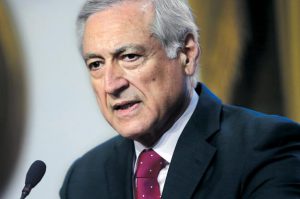
AQ Interview: Heraldo Muñoz
Correction appended below AMERICAS QUARTERLY: What are Chile’s views on bringing together the Pacific Alliance and Mercosur? HERALDO MUÑOZ: Chile has proposed and led an initiative to strengthen the different integration schemes of Latin America with the idea of improving consultation and dialogue—an effort we have called “convergence in diversity.” True, there are different economic … Read more

Edgardo Ortuño, Uruguay
First black member of parliament, undersecretary and interim minister of industry and energy, champion of Afro-Uruguayan culture—those are Edgardo Ortuño’s historic achievements in a country where the marginalization of Afro-descendants, comprising approximately 10 percent of Uruguay’s population, remains a major challenge.1 Ortuño, 45, who grew up in a working- class neighborhood in Montevideo, leveraged his … Read more
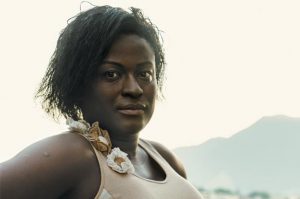
AQ Afro-Descendant Innovators: Alessandra Ramos, Brazil
As a black trans woman in Brazil, Alessandra Ramos fights discrimination on two fronts

Festival: Tango Buenos Aires Festival y Mundial
Tango is loved the world over, but if you’re looking for a city to host a competition for the world’s greatest dancers, there’s really only one candidate: Buenos Aires. Every August, Argentina’s capital draws thousands of dancers, musicians and enthusiasts from around the world for the Tango Buenos Aires Festival y Mundial from August 17 … Read more
The Unsettled Legacy of the Candelária Massacre
On this day in 1783, one of Latin America’s most significant figures, Simón Bolívar, was born in Caracas. While many in the region will celebrate the occasion, today also marks the anniversary of a more chilling episode in Latin American history. Shortly after midnight on July 24, 1993, nine hooded men, including several off-duty police officers, opened … Read more
This Week in Latin America: U.S. and Cuba Establish Ties—Venezuela’s Opposition Blocked—Another FARC Ceasefire—Argentina’s Elections
Here’s a look at some of the stories we’re following this week: U.S. and Cuba Establish Ties: The U.S. and Cuba re-established official diplomatic relations today for the first time since 1961. Bruno Rodríguez, Cuba’s foreign minister, is in Washington DC to mark the occasion, and will meet with Secretary of State John Kerry … Read more
How Brazil’s Funk Music is Challenging Social Norms
Boom CHA-CHA, de boom CHA-CHA, the sound of funk carioca can be heard reverberating loudly throughout Brazil. Unapologetic, brazen and controversial, the music’s percussion-heavy sound forms the backdrop to life in the favelas. But while the genre is sometimes written off as lewd or “cheap,” funk carioca often reflects the harsh reality of life in Brazil’s marginalized communities. That … Read more
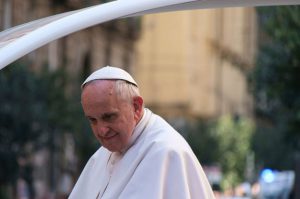
Is Latin America Ready for a 21st Century Pope?
A revolutionary. A reformer. The most progressive Catholic leader in history. All have been used to describe Pope Francis, the Argentine pontiff who has shown a willingness to embrace change in the Catholic Church and reenergize his flock in places like Latin America, where the share of adults identifying as Catholic has fallen precipitously over … Read more
Brazil’s New Rules to Limit C-Sections
On Monday, Brazil introduced new rules aimed at curbing the country’s unusually high rate of caesarean sections. The rules will require doctors to inform women about the risks of C-sections and ask them to sign a consent form prior to the procedure. Doctors will also have to sign a form justifying the C-section. This is not the … Read more
Leaks Bring New Information about Surveillance in Latin America to Light
Brazilian President Dilma Rousseff recently concluded her first state visit to the U.S. after abruptly canceling a trip scheduled for October 2013 due to allegations that the NSA had spied on her. While in the U.S., President Rousseff responded to questions about the spying issue, saying, “Some things have changed […] I believe President Obama.” … Read more


